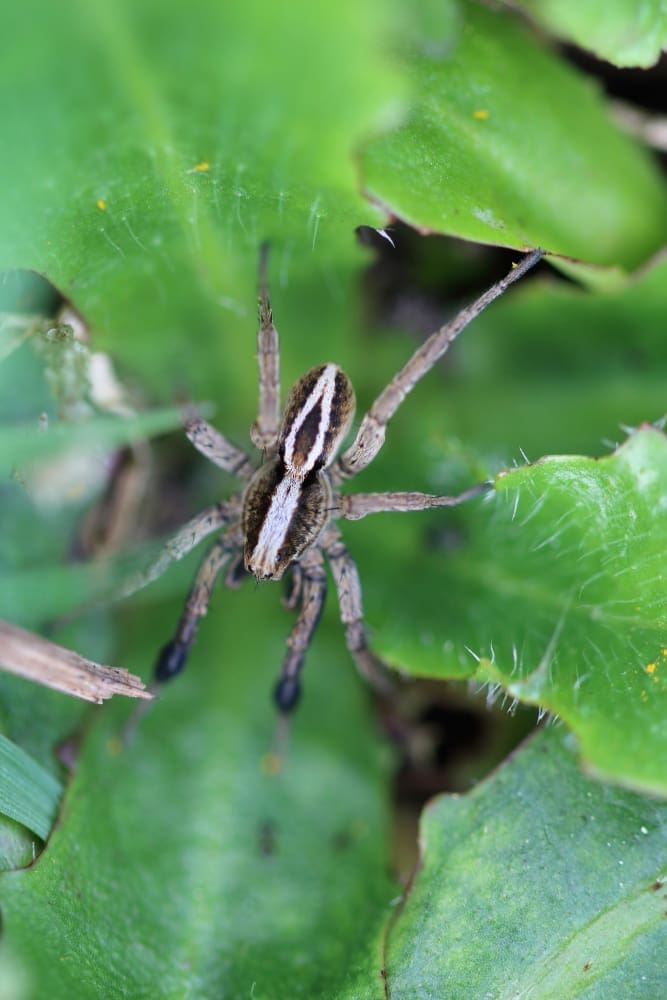
Tarentula hispanica
Latin name: Tarentula hispanica
Short name: Tarent
Common name: Spanish Tarantula | Tarentula Spider | Wolf Spider | Lycosa tarentula
Primary miasm: Syphilitic
Kingdom: Animals
Family: lycosidae
- Symptomatology
- Remedy Information
- Differentiation & Application
A potentised preparation made from the venom of the Lycosa tarentula, a spider native to southern Europe, particularly Spain and Italy. Historically linked to the phenomenon of “tarantism,” an affliction of nervous agitation believed to be caused by the spider’s bite.
No significant conventional medicinal use; culturally associated with the origin of the frenzied dancing known as the “Tarantella.”
First proved and introduced by Dr. Nunez of Havana in the 19th century, with notable elaboration by Dr. C. Hering and later practitioners including Clarke and Boericke
- nervous system – hyperactivity, chorea, spasms, trembling, paralysis
- Mind and emotions – extreme restlessness, impulsiveness, destructive emotions
- Sexual organs – intense, often perverted or overactive sexual drive
- Skin – itching, crawling, eruptions
- Circulation – high velocity, sensation of blood rushing
- Female reproductive system – menstrual irregularities, ovarian pains
- Muscles and extremities – jerking, dancing, twitching, choreic movements
- Throat and chest – constrictions, violent coughs, hysterical affections
- Music, especially lively or rhythmic tunes
- Rapid motion, dancing, whirling, rhythmic activity
- Pressure (especially in pain)
- Occupation, stimulation, excitement
- Open air (at times)
- Biting or striking objects
- touch
- Rest or inactivity
- Confinement
- Emotional repression
- Dampness and changes in weather
- Periodic recurrence, especially with the moon phase
- Being observed, contradiction
- Belladonna – Intense excitement and heat, but more congestive, less cunning or destructive
- Stramonium – Hysteria with violence and religious delusions, but more fearful, less seductive
- Hyoscyamus – Laughing, jealousy, lasciviousness, but more silly and incoherent
- Lachesis – Jealous, talkative, sexual, but more loquacious and mentally coherent
- Zincum – Restlessness, especially legs, but more mental dullness and suppressed eruptions
- Complementary: Belladonna, Zincum, Lycopodium
- Antidotes: Camphora, Coffea
- Follows well: Ignatia (in hysterical conditions)
- Precedes well: Calcarea, Lachesis
- Inimical: Nux vomica (conflicting polarities)
Tarentula hispanica represents the force of rhythm and compulsion. Its essence lies in violent kinetic energy struggling for release. The patient is fiery, unpredictable, seductive, and destructive. They live by rhythm, motion, and stimulation, and may become monstrous when restrained. A powerful remedy for children with violent restlessness, ADHD, or compulsive behaviour, and adults caught between rage, seduction, and despair. It channels the wild, anarchic animal spirit, especially in those broken by repression or trauma.
Tarentula hispanica represents the force of rhythm and compulsion. Its essence lies in violent kinetic energy struggling for release. The patient is fiery, unpredictable, seductive, and destructive. They live by rhythm, motion, and stimulation, and may become monstrous when restrained. A powerful remedy for children with violent restlessness, ADHD, or compulsive behaviour, and adults caught between rage, seduction, and despair. It channels the wild, anarchic animal spirit, especially in those broken by repression or trauma.
Mind
- Hysteria, violent
- Restlessness, must dance
- Jealousy, rage from
- Destructiveness
- Mania alternating with despair
Extremities
- Chorea, right-sided
- Restless legs, twitching
- Dancing, desire to
- Fingers, restless movement
Skin
- Itching, violent
- Sensation, insects crawling
- Scratching, until bleeding
Female
- Nymphomania
- Menses, dark, clotted
- Ovarian pain, right-sided
Generalities
- Music, rhythm, dancing
- < Suppression of discharge
- Periodicity marked
- Right-sided affections
- James Tyler Kent – Lectures on Homoeopathic Materia Medica: Mental and emotional portrait; destructive passions, periodicity, sexual themes
- William Boericke – Pocket Manual: General indications, skin symptoms, modalities
- John Henry Clarke – Dictionary of Practical Materia Medica: Full description of hysterical, restless, and choreic aspects
- C. Hering – Guiding Symptoms: Physical symptoms, alternating states, twitching, and restlessness
- Dr. Nunez – Original Prover: Early clinical observations from proving in Havana
